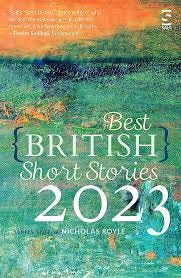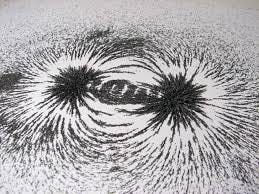"QX" by Mark Valentine
The Best British Short Stories 2023 Edited by Nicholas Royle (2023 Salt Publishing Ltd)
[....] Sometimes Brampton had the fancy that simply turning the pages of a book that had been long unopened might be a ritual act, releasing something. Not dust or stale air, or not just that, but an influence….
Readers unfamiliar with "QX" may prefer to read these notes only after reading the story.
Mark Valentine's book-hunting essays, individually and as collections, recall assemblages using old avant-garde games of chance and free-association. His nonfiction captures the excitement of the recently discovered or – even better – that which is found after years of searching.
* * *
Modern interiors
A hunter after forgotten or never-remembered books learns to cultivate biblio-telepathy: The town and the bookshop to be visited has something waiting for me.
The brief short story "QX" begins as its questing characters leave a bookstore.
‘Did you notice,’ said Michael Brampton, ‘that there was a copy of Stansby’s Black Queen Dances in there?’
They had emerged from a large second-hand bookshop ten minutes before and were now resting from the foraging that had occupied them for the last hour or so, and were sipping at coffees in a corner of a nearby café.
An earnest couple were playing at chess at the next table, in silence. They stared at the pieces and at each other about equally.
‘I did happen to notice it, yes,’ said his friend John Wickham. ‘But I’ve got a copy. And so have you, I’m sure.'
[....] Perhaps after all it was the destiny of the book to thrill or to stir or to guide someone new to it, who needed it far more than he did. It was a novel about a particular set of chess pieces, in which some of the figures seem to come alive and to be encountered or at least glimpsed in unlikely places.
Brampton feels the pull of Stansby’s Black Queen Dances. (How near are we here to "The Dreams of Albert Moreland"?)
‘Well go on then,’ said Wickham, who did not much care one way or the other. ‘I’ll wait here.’
‘Yes, I think I will. Perhaps there might be something inside it that I am meant to find.’
Brampton epitomizes the man who, attuned to a predator wavelength and in touch with his inner bookhunter, can for a time become unerring.
[....] He often had mystical urges that seemed usefully to accord with his own inclinations.
The arc of the man and woman playing a game of chess in the same cafe:
[....] The couple playing chess also seemed to [Brampton] a sign....
[....] As [Brampton] went eagerly out on his errand he noticed that the woman was doing decidedly the better at the chess game, and the man’s brown eyes were sorrowful....
[....] the man had conceded the chess game and the two were talking quietly, with long pauses. The woman held a cup of black coffee close to her face and the fumes rose around her. Her eyes mirrored the coffee....
[....] The chess couple were rising to go. The man put the chess board and the box of pieces back on a table that also had a pile of dog-eared glossy magazines. It perched on top of a copy of Romantic Interiors. They gathered up their coats and satchels and piled up the crockery neatly. They had a habit, Brampton noticed, of staring at each other, direct into the eyes, quite often. It was as if they were reading each other’s thoughts. Yet they did not seem to be partners exactly: there was no easy familiarity between them. They might have not long met. As they approached the door, he thought he heard the word ‘Dances’ emerge through the hubbub, perhaps spoken by the woman, and he thought she might have looked back.
But he could not be sure of the word or the glance, and could have imagined them.
For a few moments he wondered if she had noticed the book in the shop too, and was telling the man with the melancholy eyes that she had intended going back for it. What would have happened if he had not himself taken it? There opened out a different perspective in which it was she, and not he, that had the book: perhaps his own interference had prevented what should have happened....
Had these players already emerged from Stansby’s Black Queen Dances? Or are they unknowingly going to miss purchasing it this day?
Is that why Brampton found nothing arresting for himself in the book store's copy on initial inspection? And: is the woman's chess victory predicted or explained by the notation "Qx" found in the newly purchased Stansby after Brampton's closer inspection?
* * *
“QX” is deft and slick; everything unnecessary has already been erased.
Jay
20 February 2024
Postscript
My previous reading notes and underlinings of Mark Valentine's nonfiction are here, here, and here.
Mark Valentine's essays on book collecting led me to two great reading experiences: All Night at Mr. Stanyhurst's (1933) by Hugh Edwards and Witching Hill (1913) by E.W. Hornung (1913).







